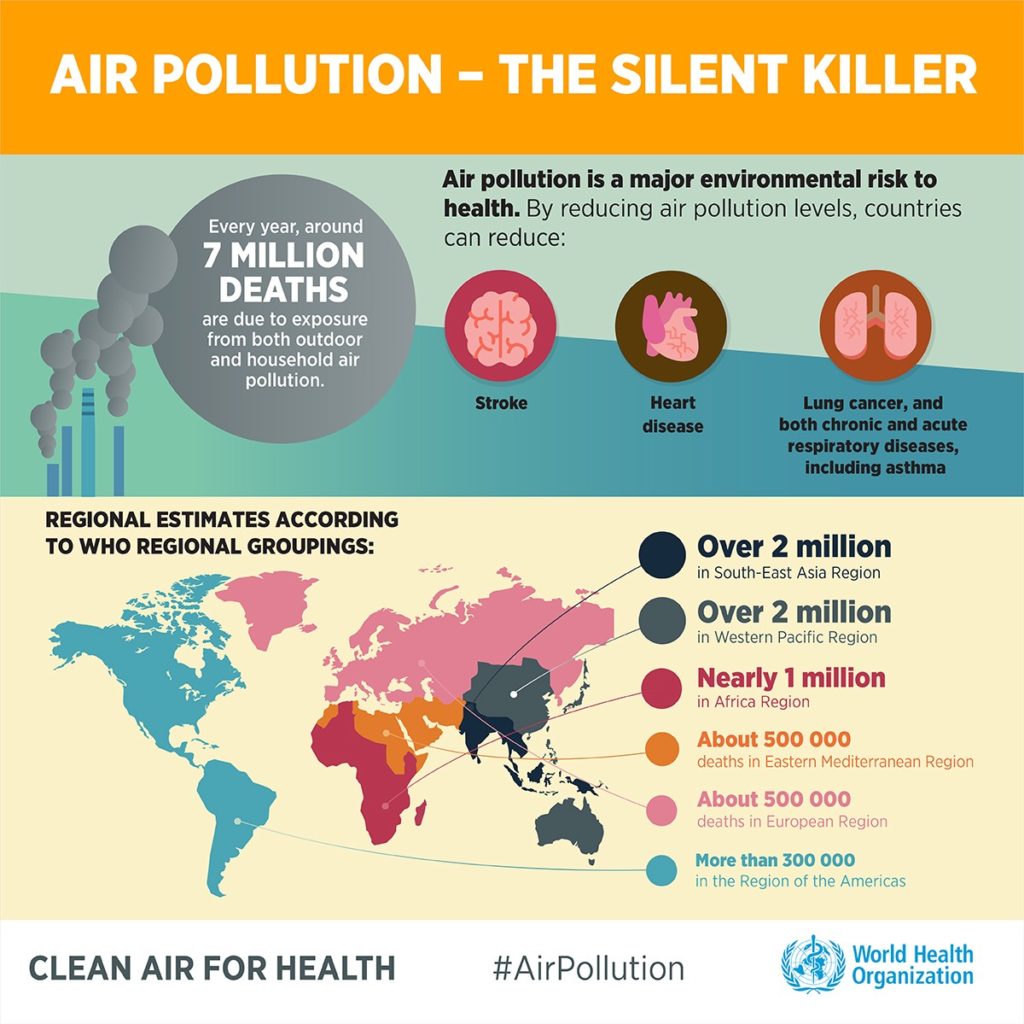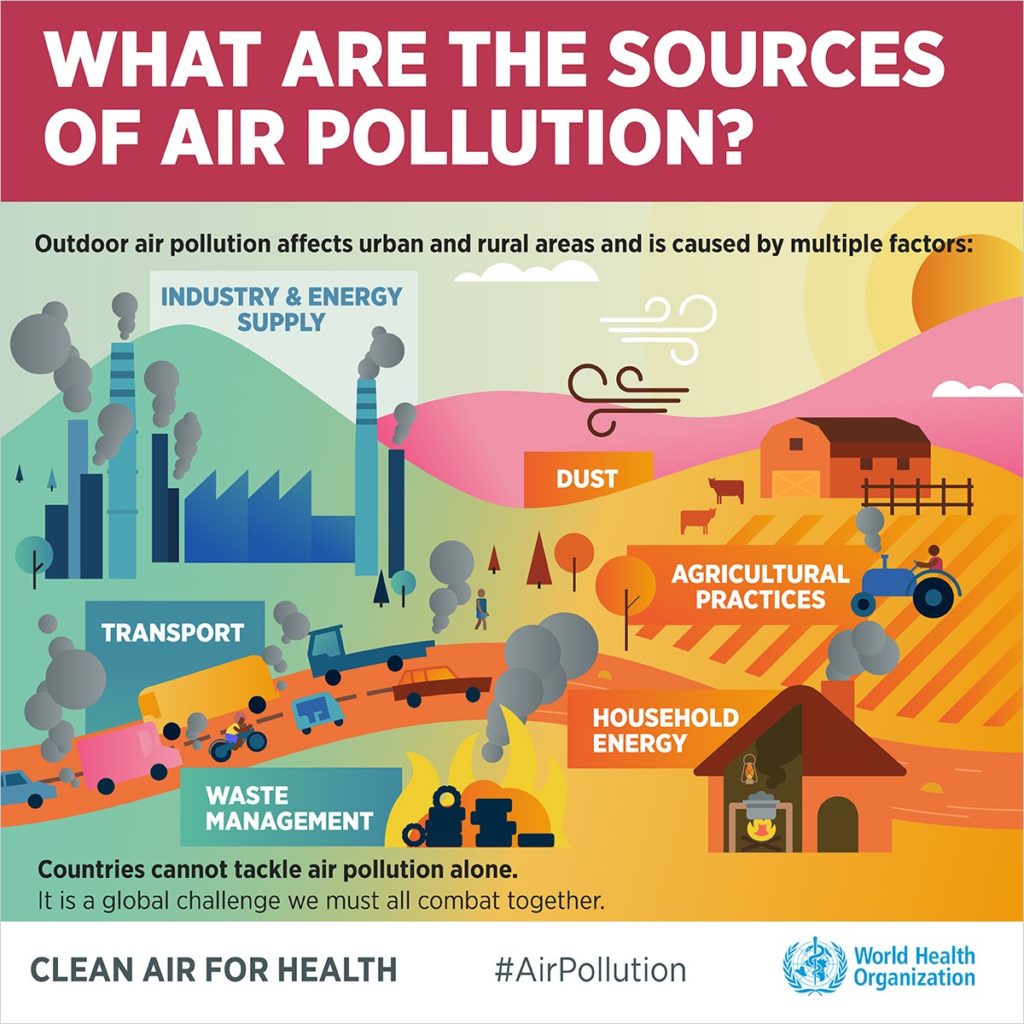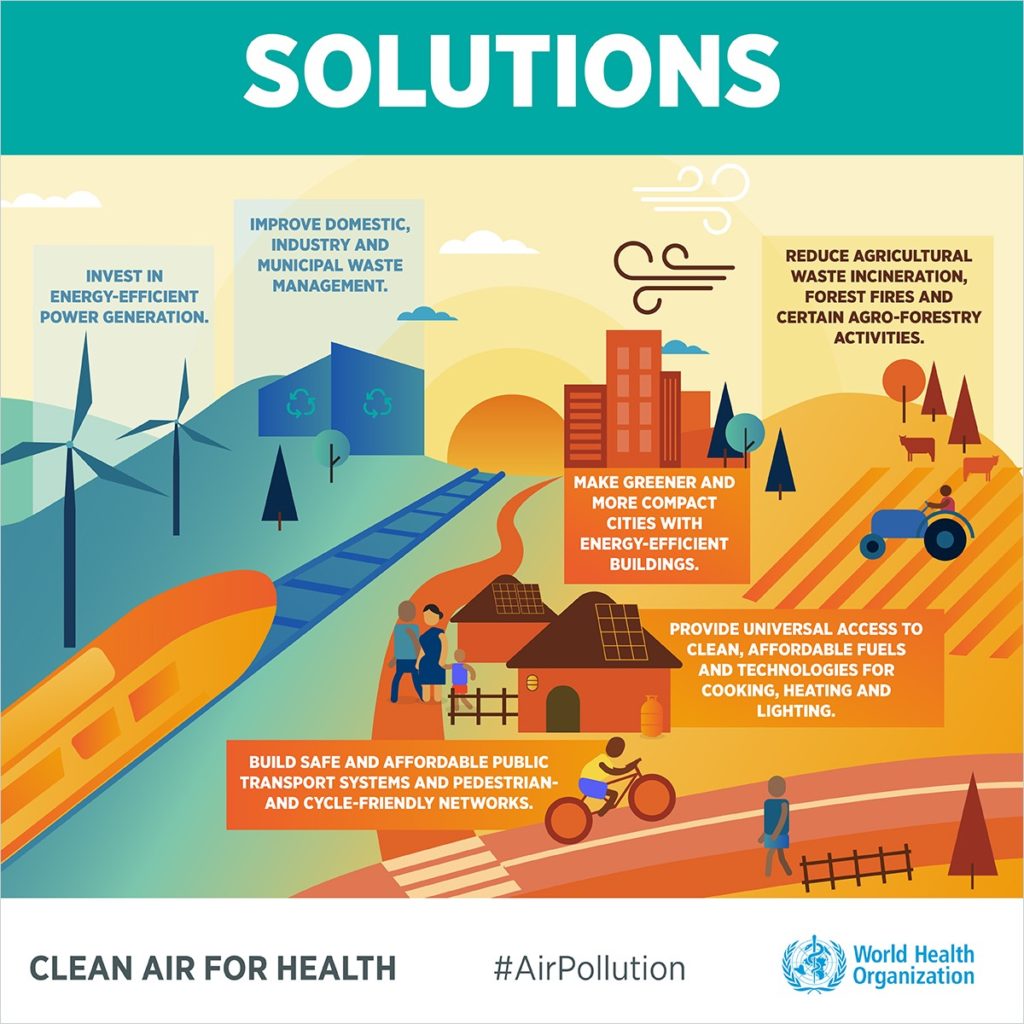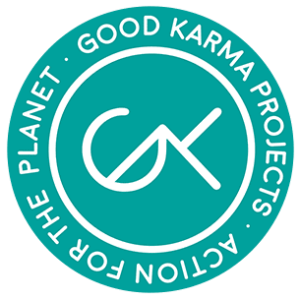If you’re reading this from a city in a high-income country, you have about a one in two chance of breathing in air that exceeds World Health Organization guidelines for air pollution. That’s worrying enough, but if you live in a city in a low- or middle-income country, the chances of breathing in clean air are much slimmer still—97 per cent of cities in these countries do not meet air quality guidelines.
Most of the global population is exposed without their consent to hazardous substances and wastes that increase their likelihood of developing diseases and disabilities throughout their lives. In some cases, it has the potential to be a human rights violation.
” You couldn’t live without it, but you take it entirely for granted.
You can’t see it, but it’s all around you. “

Action is needed by decision-makers, the private sector and other key stakeholders to address pollution in its various forms. National and local authorities need to take more action, especially against the main offenders – urban transport and the use of fuels such as coal or wood for household heating. And people must embrace changes in their lifestyles to advance the promotion, protection and respect for environmental human rights.

Placing human rights at the core of environmental issues would be beneficial for everyone, no matter what their job is or what city they live in. We would all benefit from cleaner air, water and soil, as will the generations that come after us. Ensuring that the most vulnerable people in society are protected will ensure the protection of the entire global community.

THIS IS WHAT YOU SHOULD BE DOING:
Reduce
Reuse and Recycle
Reduce transportation
Use public transportation
Reduce energy consumption
Change to clean energy sources
Reduce your devices
Use energy efficient devices


